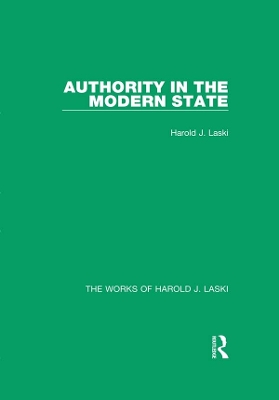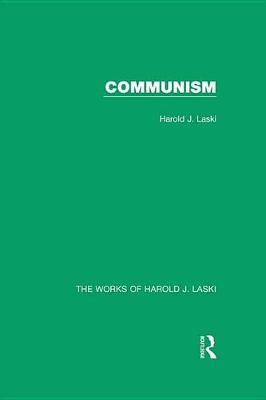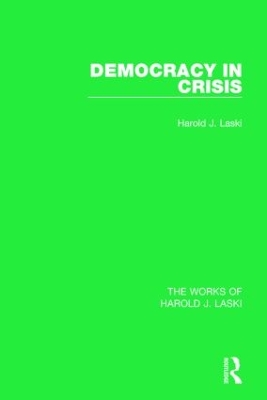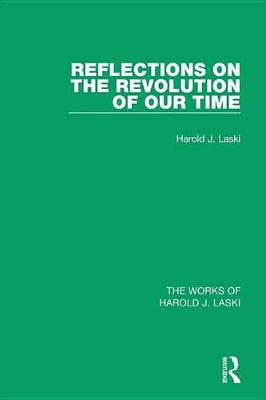The Works of Harold J. Laski
24 total works
Authority in the Modern State (Works of Harold J. Laski)
by Harold J Laski
As a sequel to Studies in the Problem of Sovereignty, this volume, originally published in 1919, expands Laski's pluralist doctrine of the state, (using France as its reference) but covers rather broader ground, since its main object is to insist that the problem of sovereignty is only a special case of the problem of authority. The result is a positive, constructive analysis of politics and the theory of the state which examines the division and organisation of power, the limitations of power and the significance of freedom, the political theory of Bonald, the revival of traditionalism and the role of the Church and the Civil Service.
This volume bases a clear and unbiased account of Communist philosophy on the Marxian Materialist Concept of History and Marxian Theory of Value. The spear-head of Marxism is its doctrine of class-struggle and from this Laski sets out on in his exposition of the Communist attitude.
Although first published in 1927, the intervening years have in no way detracted from the intrinsic value of this enlightening study, regarded by many as the essential textbook for the understanding of this subject.
This volume is an expanded version of the Weil lectures given at the University of North Carolina in 1931 and is one of the two texts of Laski’s quasi Marxist period.
Reflections on the Revolution of our Time (Works of Harold J. Laski)
by Harold J Laski
This is Laski's most important book after A Grammar of Politics. It discusses, on a grand scale, every aspect of American public life. Laski surveys American traditions and the American spirit, political institutions, the entire educational, religious, economic and social scene, America as a world power, and Americanism as a principle of civilisation. Laski's unsurpassed knowledge of American constitutional, social and cultural history is set in the perspective of his deep study of comparative constitutional history and political theory. He was one of very few people to see U.S. politics from the inside, as a result of his friendships with Roosevelt, Brandeis and Oliver Wendell Holmes.



